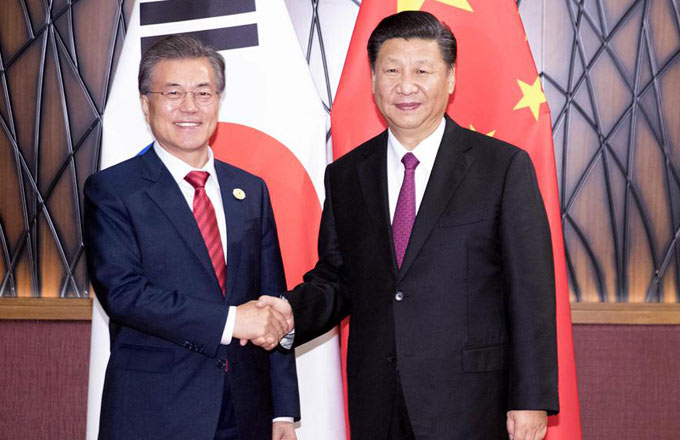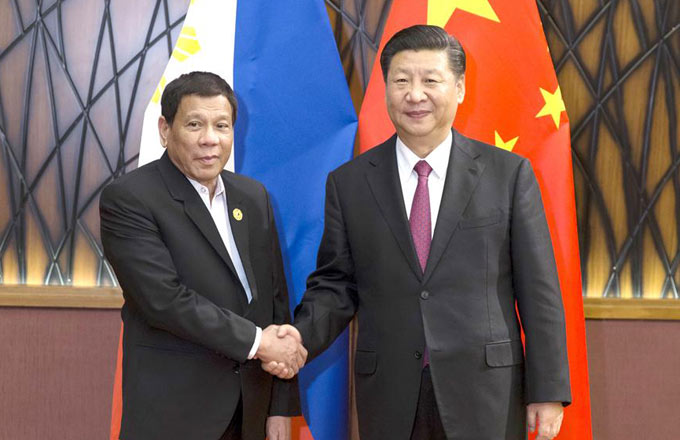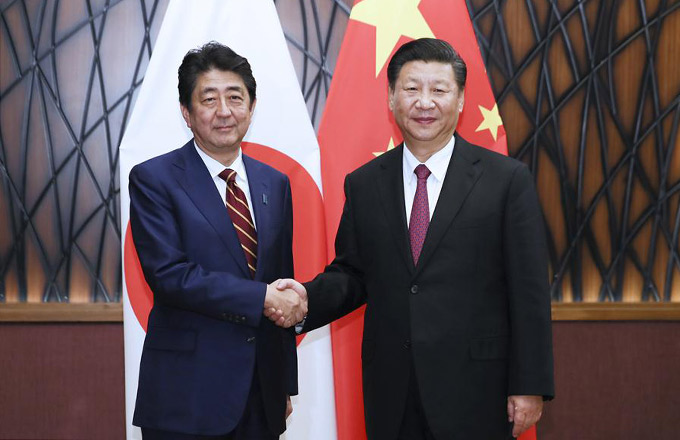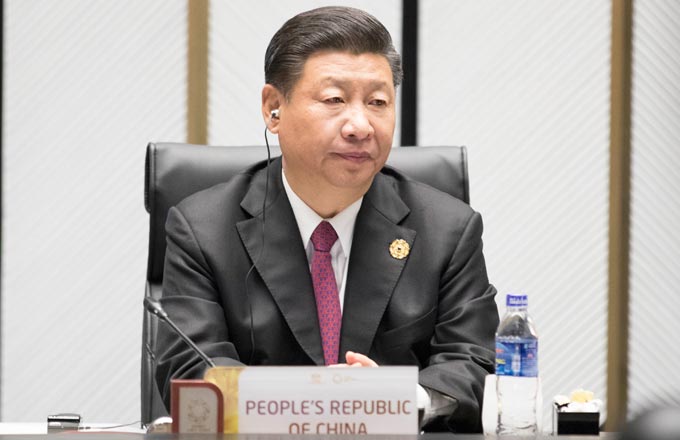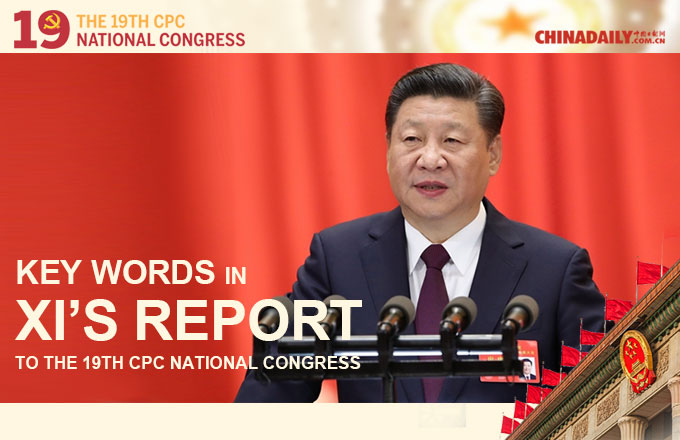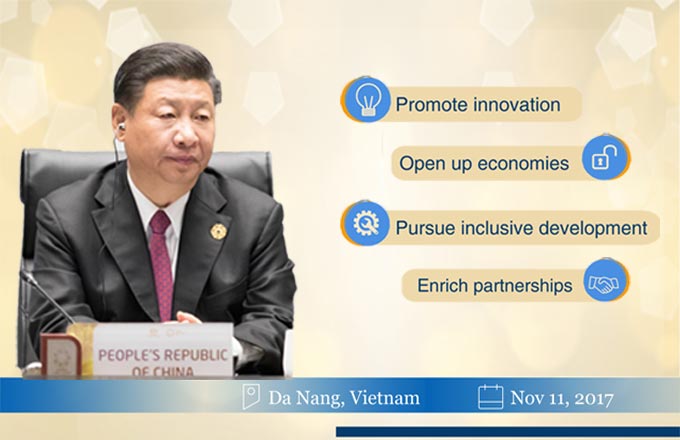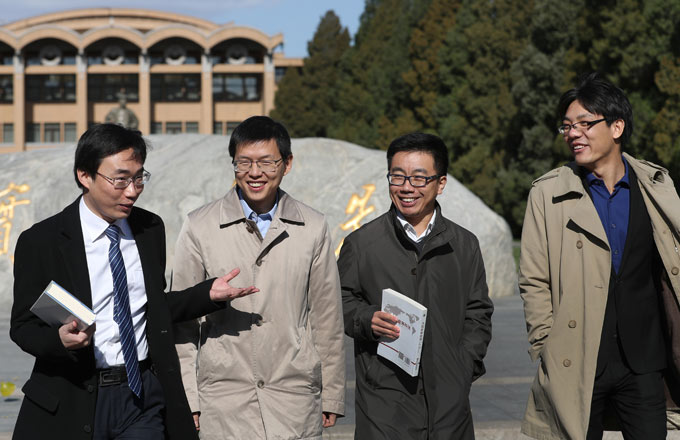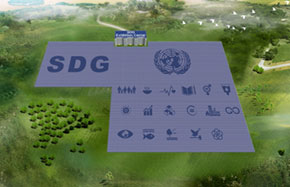Party School teachers learning lessons in life
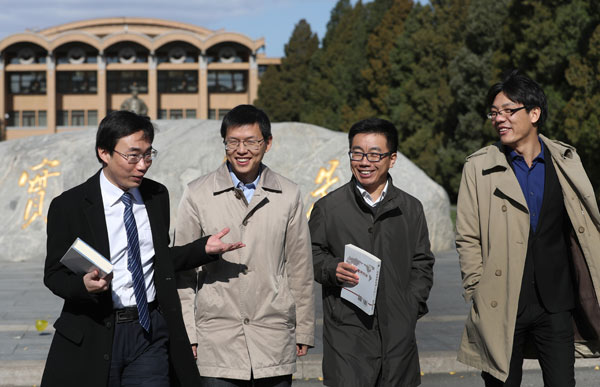 |
|
From left: Yue Liang, Chen Qiqing, Wang Xuebin and Li Shaowen at the campus of the Party School in Beijing on Friday.[Photo by Zou Hong/ China Daily] |
A mixture of academic success and hands-on experience provide lecturers with a stimulating environment.
In 2015, shortly before delivering his first lecture at the Party School of the Central Committee of the Communist Party of China in Beijing, Zheng Huan began to panic. He felt he wasn't ready for the challenge of delivering the class lecture, even though he had spent three years employed as a teaching assistant and was familiar with the school's methods and ethos.
"Despite learning a lot of theory during my 10-year study of political science, I failed to answer many of the students' questions when I worked as an assistant. My knowledge and the training I had received weren't enough to meet the demands of the job," the 32-year-old lecturer said.
"Many of the students have doctorates, and many have an international perspective because they have traveled overseas frequently. They know what I know, but I don't necessarily know what they know."
The school, which is the nation's top training establishment for Party officials, offers a wide range of courses. Each lecture lasts two hours, and irrespective of the topic, a few students are always experts in the field. For example, a recent lecture about the new normal of China's economic development was actually introduced by one of the students.
In addition to learning about theory, the officials also need to understand how to apply that knowledge, which presents many challenges, according to Zheng.
"Freed temporarily from the burdens of work, the students make full use of their time at the Party School to find answers to the questions they have been asking themselves and discovering solutions to problems that have been troubling them," he said.
Changing times
When Yue Liang began working as a full-time teacher in 2012, he had already taught part time at another school for 10 years, while studying history at Beijing Normal University. The 35-year-old still finds his work challenging.
"As a Party School teacher, you can never stop learning. The Party always keeps pace with the times. The world is changing and the Party is also changing to respond to new problems," he said.
"Many people say it's a tiring job because our students are officials with deep experience and different backgrounds, so the teachers have to know about different subjects. It's not enough to just read books about your own major."
He added that last year he read about 40 books on history, economics, political science and sociology.
Reading is one of the main activities on campus, and in addition to regular discussions at a bookstore on the school grounds, the different departments and teachers organize regular dialogues. Moreover, to gain even more experience, many teachers conduct extensive research in the field.
Yue spends more than 40 days a year on field research. "When I return, I contact my colleagues and students to discuss the problems I have discovered, and consult documents to identify the causes and solutions," he said.
Chen Qiqing, a professor of economics who joined the school in 2006, said that when problems are identified, it is easy to carry out in-depth studies because one can always find students with relevant experience.
One of the topics under current scrutiny is the hukou, or household registration, system. In many areas, people cannot benefit from social services if they live in places where they are not registered. During his research, Chen discovered that many people from the countryside are unable to obtain hukou in urban areas and are therefore excluded from the benefits system, even though they have moved to towns to meet the demand for workers.
In his search for a solution, Chen has consulted some of his students who are officials at the Ministry of Public Security and therefore well-qualified to explain reform of the hukou system and the challenges that will produce.
"Party School students are all officials at different levels in different regions and industries. If they share their insights based on their practical experience, it helps us teachers to understand the country better," he said.




